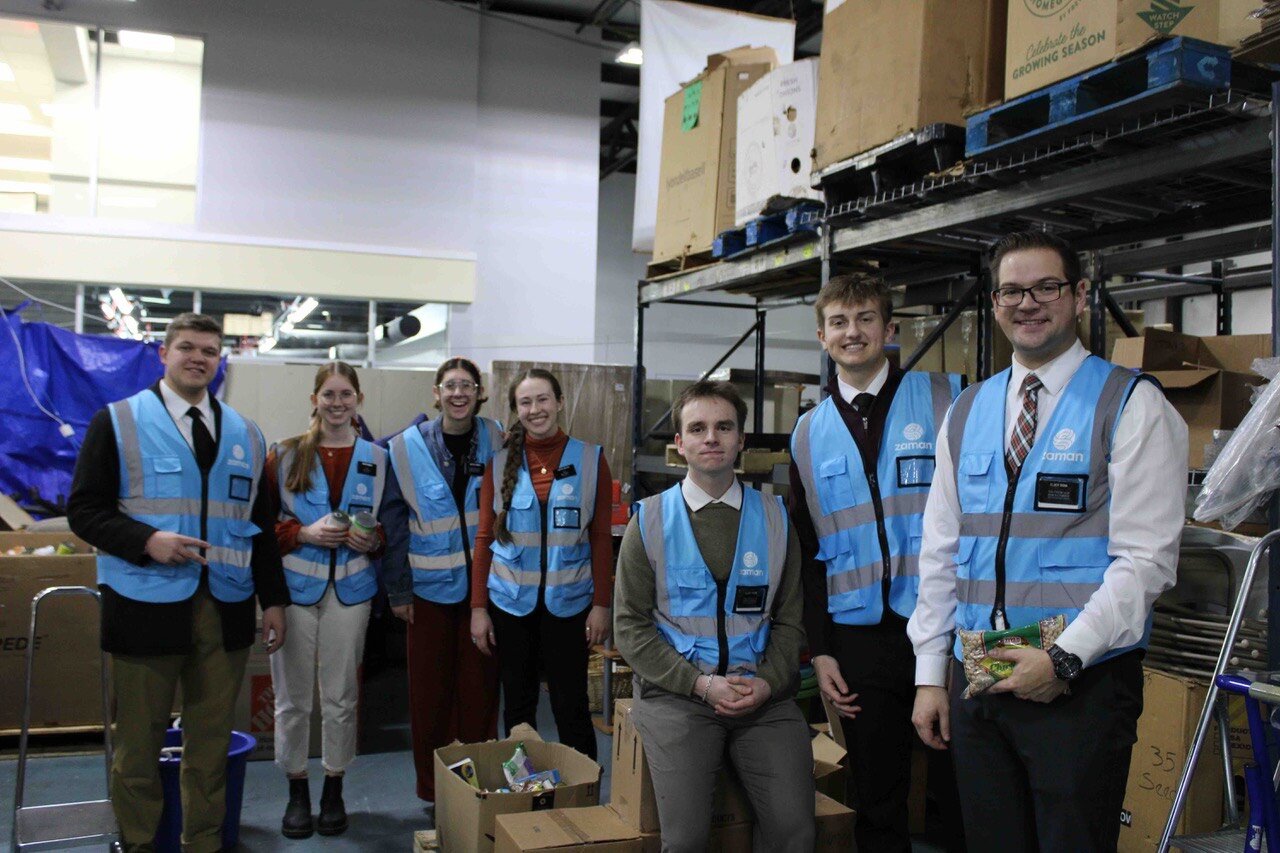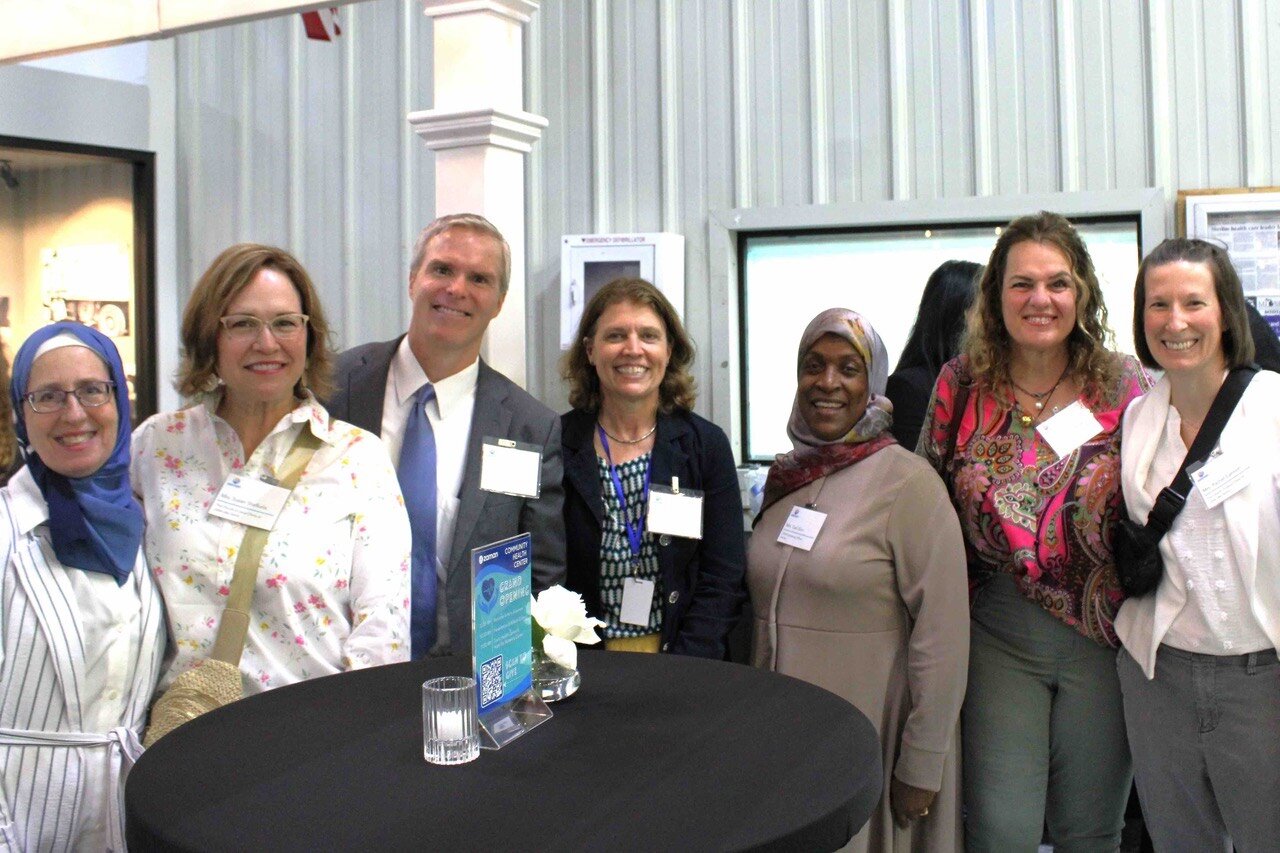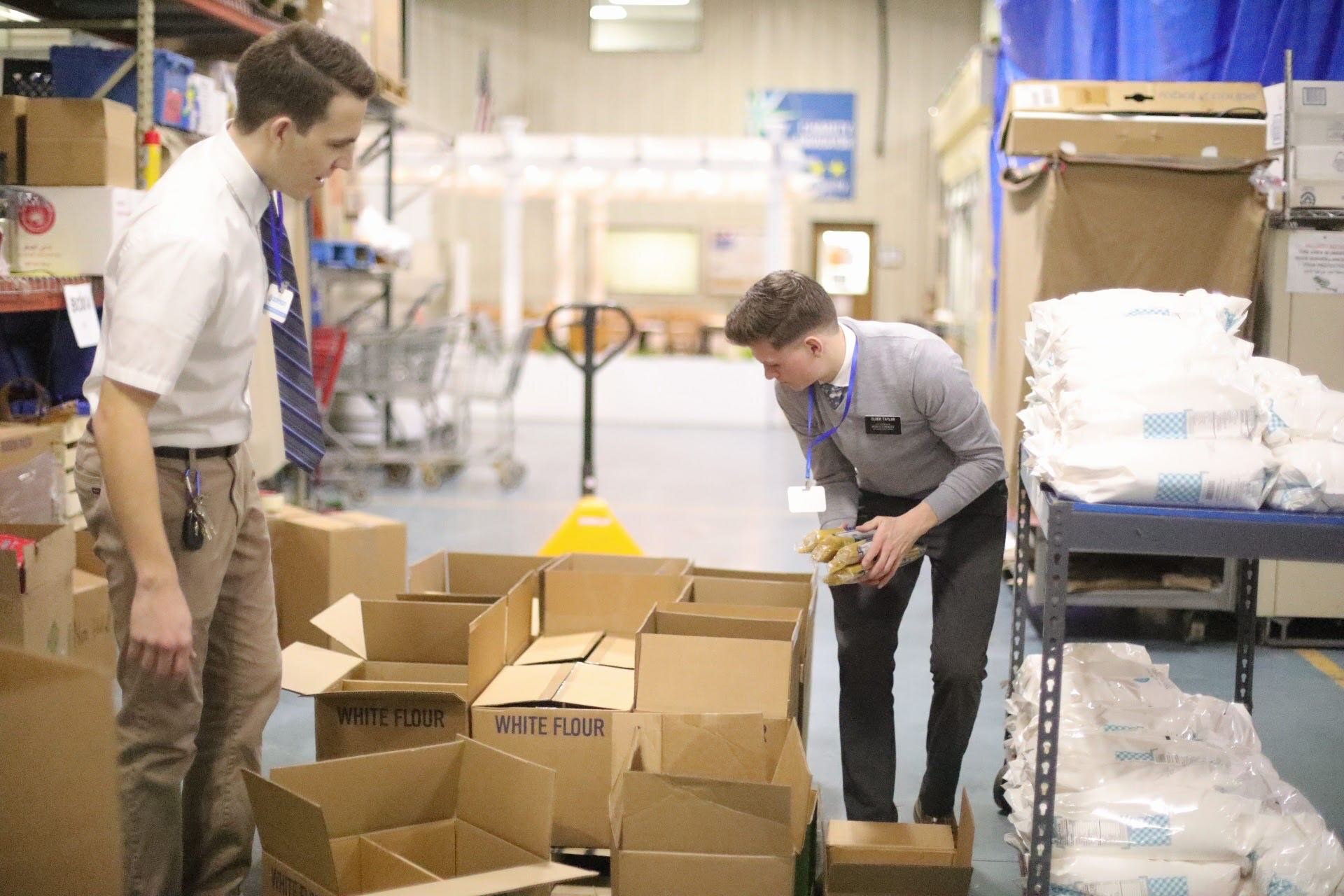Shared humanity that crosses language, religious and cultural barriers
An unlikely partnership has blossomed between the Mormon church and Zaman International, a nonprofit that serves mostly Middle Eastern Muslim women. Both faiths have more in common that it might appear on the surface.
At first glance, the Church of Jesus Christ of Latter-day Saints (whose members are commonly known as Mormons) and the various sects of Islam might look like they have little in common.
In fact, they share multiple common values: modesty in dress, adherence to religious rituals unfamiliar to people outside their faiths, and a fundamental belief in helping others in need.
Those common values have led to a partnership between the Westland stake (a group of local church congregations, similar to a Christian diocese) of the LDS church and Zaman International, to help Zaman’s mostly immigrant, female clientele to overcome barriers and enjoy a full and productive life.
“We believe as disciples of Jesus Christ that we should reach out to everyone, not just those within our faith community,” says Rachel Cannon, director of communications for the Westland stake. “We believe every person is a child of God and is of worth and is worth helping. There is very much in alignment with what we believe about who we are as humans and what we should be doing with our fellow humans, and that alignment has been a big part of producing that special relationship we have with Zaman.”
Some of the fruits of that relationship have been church members gathering household goods and winter gear to help Afghan refugees who came to the United States after the war in Afghanistan ended, as well as sponsoring several refugees through the U.S. refugee resettlement program.
The church also helped support the opening of Zaman’s health clinic, and provides food to the Zaman food pantry through its Bishop’s Storehouse commodities program.
Building bonds one banana at a time
Many people may be familiar with seeing young men clad in white shirts and black pants, riding their bikes around the city. These young men are on a mission that is a rite of passage in the Mormon church, where they spend two years living in almost any location around the world and furthering the message of the church.
Young women also serve, for a shorter period of time. Often, Zaman hosts these young people as volunteers, and the interactions between them and Zaman clients reflect a sense of shared humanity across language barriers and different cultures.
Cannon related one story of a young woman (known as a sister) who was volunteering with the Zamn sewing program that teaches clients to operate a commercial sewing business. It was lunchtime, and the Zaman clients gathered to eat together and were speaking in Arabic.
The sister did not speak Arabic and was taking a later lunch, so she sat at a table by herself. The women noticed this, and came over to offer her a banana because they noticed she didn’t have any food. This experience of kindness and shared humanity was incredibly meaningful to her.
“Most people grow up in one type of situation… in a world, and you think that is the world,” Cannon says. “When you sit down with the people and you’re getting to know the people and you’re trying to help and lift the people every day, it changes your understanding of the challenges that people face. It changes your understanding of what it means to live out your faith and what it means to lift others.”
The commonality of fasting
Another commonality between the clients of Zaman and the Mormon church is the practice of fasting. In Islam, adherents are expected to fast from sunup to sundown during the month of Ramadan.
Mormons also fast for 24 hours every month, and are expected to donate what they would have spent on food and beverages over those 24 hours to hunger relief within the church. It’s those donations that pay for the food in the Bishop’s Storehouse that stock Zaman’s food pantry, says Greg Geiger, an ordained bishop in the LDS church and president of the Interfaith Leadership Council of Metropolitan Detroit.
“Fasting for 30 days is pretty challenging, but also going for 24 hours without food is going to be challenging as well,” Geiger says, adding that fasting creates compassion for those that are hungry not by choice.
The relationship with the church has been incredibly helpful for Zaman and its clients, says Monica Boomer, chief impact officer of Zaman International. “It’s almost impossible to capture just how monumental this support has been for Zaman,” she says. “To be able to sit down with a partner like the church and have frank conversations about what the most effective investment will be, whether it’s time, whether it’s finances, to really make an impact on the lives of the women and children and refugees Zaman serves; it’s unlike really any other partnership. They’re really thought partners with us.”
As part of its partnership with Zaman, the Wayne-Westland stake is collaborating with several other organizations in the area to identify needs in the community and figure out ways to meet them collectively.
Cannon points out that the western Wayne County area near Zaman’s Inkster headquarters does not have the kind of large social service organizations that a city like Detroit has available, and this collaboration aims to help address that need.
Looking forward, both Geiger and Cannon say the church intends to continue its partnership with Zaman because it’s been so positive for both entities. “It’s hard to say exactly what’s going to happen, but that we are committed to continuing to do good together,” Cannon says.
This story is part of the Nonprofit Journal Project, an initiative focused on nonprofit leaders and programs across Metro Detroit. This series is made possible with the generous support of our partners, the Ralph C. Wilson Jr. Foundation, Michigan Nonprofit Association and Co.act Detroit.







